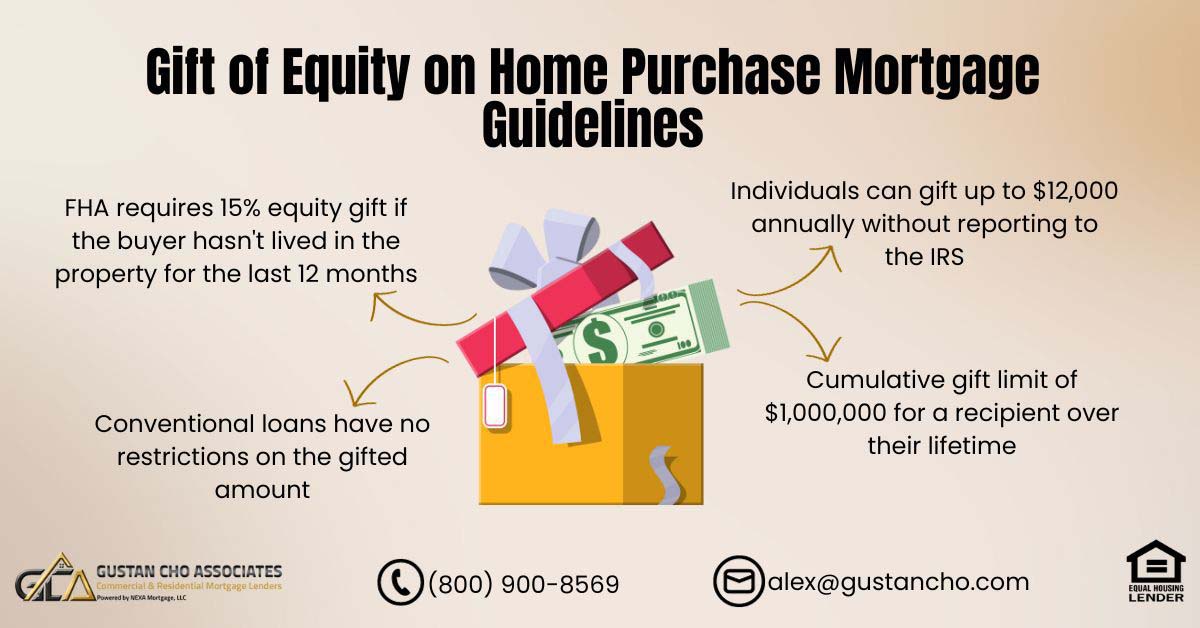How Equity Release Mortgages Can Release Property Value
How Equity Release Mortgages Can Release Property Value
Blog Article
Discovering the Various Types of Equity Release Mortgages Available Today
Equity Release mortgages present numerous choices for home owners aged 55 and over. equity release mortgages. These economic products satisfy different requirements and choices, allowing individuals to access funds from their property. From life time home mortgages to common appreciation home mortgages, each type supplies distinctive advantages. Comprehending these options is vital for making educated decisions. What aspects should one think about when picking the most suitable equity Release strategy? The details that comply with might clarify this vital topic
Comprehending Equity Release Mortgages
Equity Release home mortgages supply home owners, typically those aged 55 and over, with a method to access the value locked up in their residential property without needing to sell it. This economic choice enables people to convert a portion of their home equity into cash, which can be made use of for various objectives, such as home enhancements, paying off debts, or financing retirement.Equity Release can take various forms, but it essentially entails loaning against the value of the home while retaining possession. Home owners can select to obtain a round figure or a collection of smaller sized settlements, depending upon their economic requirements and preferences.Additionally, the amount available for Release is affected by the residential or commercial property's value, the homeowner's age, and details lending institution standards. In general, comprehending equity Release mortgages is important for home owners to make enlightened decisions regarding taking advantage of their home's equity while considering the long-term ramifications.
Life time Mortgages
Life time home mortgages stand for one of the most prominent types of equity Release. This economic item enables house owners, generally aged 55 or older, to obtain against the worth of their property while maintaining possession. The lending, which is protected against the home, accrues passion gradually yet does not call for monthly payments. Instead, the finance and accumulated interest are repaid when the homeowner dies or relocates into long-lasting care.Lifetime mortgages supply flexibility, as customers can choose to obtain a lump amount or go with a drawdown center, accessing funds as required. Notably, numerous plans included a no-negative-equity guarantee, ensuring that customers will never ever owe more than the worth of their home. This feature offers comfort, allowing people to enjoy their retired life without the anxiety of diminishing their estate. Overall, lifetime home loans function as a feasible option for those looking for financial backing in later life.
Home Reversion Program

Drawdown Life Time Mortgages
While many homeowners look for means to access their wide range, drawdown life time home mortgages offer a flexible alternative that allows people to Release funds slowly. This sort of equity Release mortgage enables home owners to borrow against the worth of their home while keeping ownership. Unlike conventional lifetime mortgages, drawdown plans enable customers to access a part of their equity upfront and take out added funds as required, approximately a predetermined limit.This feature can be particularly useful for those that wish to handle their finances thoroughly, as it lessens passion accumulation by just billing rate of interest on the quantities drawn. In addition, drawdown life time home mortgages usually feature a "no negative equity warranty," making sure that consumers will never ever owe even more than their home's worth. This option suits retired people who desire monetary protection and adaptability, allowing them to satisfy unforeseen costs or keep their way of life without needing to sell their property.
Improved Lifetime Mortgages
Boosted Life time Home mortgages supply unique advantages for qualified house owners seeking to Release equity from their buildings. Understanding the qualification requirements is crucial, as it determines who can benefit from these specialized loans. Nevertheless, it is likewise essential to examine the prospective disadvantages linked with boosted alternatives, guaranteeing a well-shaped point of view on their use.
Qualification Criteria Described
Recognizing the qualification requirements for Improved Life time Mortgages is important for prospective applicants seeking to access the equity in their homes. Typically, applicants have to be aged 55 or older, as this age requirement is standard in the equity Release market. Homeowners ought to have a home valued at a minimal limit, which can vary by lending institution. Significantly, the property needs to be their main home and in good condition. Lenders frequently examine the house owner's health and wellness condition, as particular wellness problems may enhance qualification and benefits. In addition, candidates must not have existing considerable financial obligations safeguarded versus the residential or commercial property. Meeting these requirements enables individuals to discover Improved Lifetime Home mortgages as a practical choice for accessing funds bound in their homes.
Benefits of Boosted Home Mortgages
After making clear the qualification requirements, it becomes obvious that Improved Lifetime Home mortgages offer numerous significant advantages for house owners aiming to utilize their residential property equity. Largely, they offer access to a larger finance quantity contrasted to typical life time home loans, benefiting those with health problems or age-related factors that increase their life span threat. This enhanced loaning capability enables property owners to meet different economic needs, such as home enhancements or retirement expenses. Additionally, these home loans usually feature flexible settlement alternatives, enabling customers to manage their financial resources more efficiently. The no-negative-equity warranty better ensures that home owners will certainly never ever owe greater than their property's value, providing comfort. In General, Improved Life time Home loans provide a compelling option for eligible house owners looking for monetary services.
Possible Disadvantages Taken Into Consideration
While Improved Lifetime Home mortgages provide numerous advantages, possible downsides warrant mindful factor to consider. One significant concern is the influence on inheritance; the equity launched reduces the worth of the estate left to recipients. In addition, these mortgages can accrue considerable passion in time, bring about a considerable financial obligation that may exceed the initial car loan quantity. There may also be constraints on residential or commercial property modifications or rental, restricting homeowners' versatility. Boosted items often require details health and wellness problems, implying not all homeowners will certainly qualify. Ultimately, managing the fees and fees connected with these home loans can be complex, potentially causing unanticipated prices. Consequently, people should extensively analyze their circumstance and get in touch with economic consultants prior to proceeding.
Shared Appreciation Mortgages
Shared Gratitude Home loans represent an one-of-a-kind financial arrangement that enables property owners to accessibility equity while i was reading this sharing future home worth enhances with the loan provider. This technique offers potential benefits such as lowered monthly payments, but it additionally includes disadvantages that need to be very carefully taken into consideration. Recognizing the eligibility requirements is important for those thinking about over at this website this choice.
Idea Introduction
Equity Release home loans, particularly in the form of common recognition home mortgages, offer home owners an unique monetary solution that enables them to access funds by leveraging the worth of their residential or commercial property. In this plan, a loan provider offers a finance to the property owner, which is commonly paid off with a share of the residential or commercial property's future gratitude in worth. This suggests that when the house owner markets the building or dies, the loan provider receives a percent of the increased value, rather than simply the preliminary loan quantity. Shared admiration home loans can be appealing for those aiming to supplement their income or financing considerable expenses while preserving ownership of their home. The monetary ramifications of common appreciation have to be carefully taken into consideration by possible borrowers.
Benefits and Downsides
Although shared gratitude home mortgages can offer considerable monetary benefits, they additionally include significant drawbacks that prospective customers should consider. These mortgages allow homeowners to gain access to equity in their residential properties while sharing a part of any type of future appreciation with the lending institution. This setup can be valuable throughout times of rising property worths, supplying considerable funds without regular monthly repayments. The major drawback is the potential loss of equity; homeowners might finish up with substantially minimized inheritance for successors. Additionally, the complexity of the terms can result in misunderstandings pertaining to settlement obligations and the percentage of admiration owed. It is necessary for customers to consider these aspects very carefully before devoting to a shared appreciation home mortgage.

Qualification Requirements
What standards must home owners meet to receive a shared appreciation mortgage? Primarily, prospects need to be at least 55 years of ages, assuring they are within the target market for equity Release items. Additionally, the residential or commercial property should be their primary house and normally valued over a specified minimum limit, typically around ? 100,000. Lenders likewise examine the homeowner's financial conditions, consisting of income and arrearages, to determine they can handle the mortgage properly. Importantly, the building has to remain in great condition and devoid of substantial legal encumbrances. Home owners need to additionally have a clear understanding of the terms, consisting of how recognition will be shared with the lending institution upon sale or transfer of the residential property, as this affects general returns.
Choosing the Right Equity Release Choice
:max_bytes(150000):strip_icc()/dotdash_Final_Home_Equity_Loan_vs_HELOC_What_the_Difference_Apr_2020-01-af4e07d43f454096b1fbad8cfe448115.jpg)
Often Asked Inquiries
What Age Do I Need to Be for Equity Release?
The age requirement for equity Release typically starts at 55 for most strategies. Nevertheless, some providers may offer choices for those aged 60 and above, reflecting differing terms based on specific conditions and lending institution plans.
Will Equity Release Affect My Inheritance?
Equity Release can impact inheritance, as the quantity borrowed plus passion decreases the estate's value. Beneficiaries may get much less than prepared for, depending upon the property's appreciation and the total financial obligation at the time of passing.
Can I Move House With Equity Release?
The question of relocating residence with equity Release develops often. Typically, individuals can move their equity Release strategy to a new home, however particular terms and problems might use, calling for assessment with the lender for support.
Are There Costs Connected With Equity Release Mortgages?
Costs related to equity Release mortgages can include setup fees, evaluation costs, and legal costs. Furthermore, there might be early payment charges, which can impact the general price and monetary effects for the consumer.
Exactly How Does Equity Release Effect My Tax Obligation Circumstance?
Equity Release can impact one's tax obligation situation by possibly boosting gross income, as released funds are taken into consideration resources. It generally does not incur immediate tax obligation responsibilities, making it vital to seek advice from a financial consultant for personalized assistance.
Verdict
In recap, the variety of equity Release mortgages available today uses homeowners aged 55 and over several paths to access their residential or commercial property's worth - equity release mortgages. Whether going with a lifetime home mortgage, home reversion strategy, or various other choices, each alternative offers distinctive advantages customized to private monetary demands. Mindful factor to consider and consultation with an economic expert are important to guarantee the selected equity Release remedy aligns with individual objectives and economic scenarios, inevitably facilitating educated decision-making for a protected economic future. Equity Release mortgages existing various choices for home owners aged 55 and over. Equity Release home mortgages offer property owners, generally those aged 55 and over, with a means to access the worth linked up in their residential property without requiring to sell it. Enhanced Life time Home mortgages use unique advantages for qualified property owners seeking to Release equity from their residential properties. Equity Release home mortgages, specifically in the kind of common gratitude home mortgages, offer homeowners an one-of-a-kind financial option that enables them to access funds by leveraging the value of their building. In summary, the selection of equity Release mortgages offered today uses property owners aged 55 and over numerous paths to access their property's value
Report this page